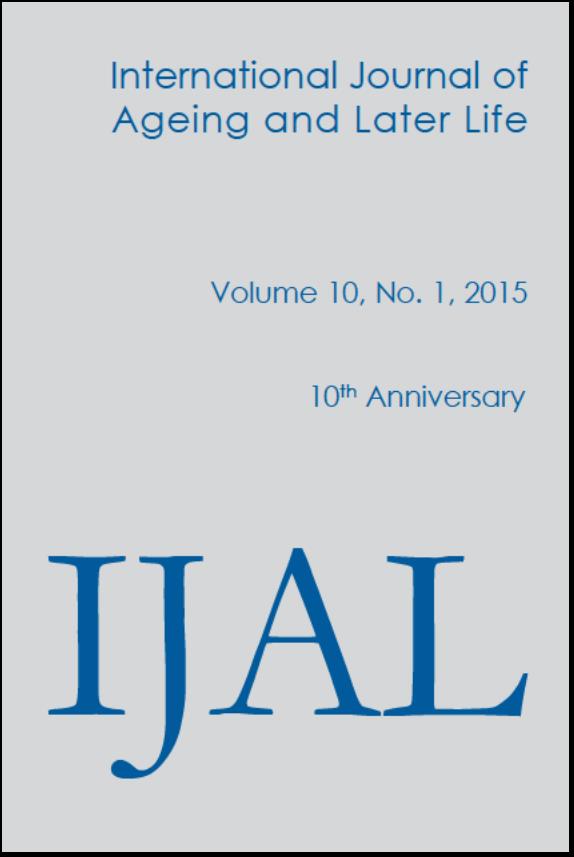Theorising ageing and the question of a long life: eye openings
Main Article Content
Abstract
A life course perspective, drawing on historical and personal experiences, is used to identify eye-opening concepts that can be used to make sense of the world in terms of personal and social ageing, in the context of intergenerational relationships. Two issues have been identified that characterise a challenge to cultural adaptation: that of generations increasingly becoming approximately the same size as they move from demographic triangles to columns, and that of finding an age-specific purpose for a long life. An analysis of contemporary problems facing gerontology and social policy is given, drawing on the need for complementary life priorities and enhanced generational intelligence. Implications for work, generational rivalry and precarity are examined along with some conclusions on the role of eyeopening conceptual development.
Metrics
Article Details

This work is licensed under a Creative Commons Attribution-NonCommercial 3.0 Unported License.
Since 2020 the International Journal of Ageing and Later Life uses a Creative Commons: Attribution license, which allows users to distribute the work and to reform or build upon it without the author's permission. Full reference to the author must be given.
References
Biggs, S. (1999). The Mature Imagination: Dynamics of Identity in Midlife and Beyond. Maidenhead: Open University Press.
Biggs, S. (2014a). Adapting to an ageing society: The need for cultural change. Policy Quarterly 10(23): 12–17.
Biggs, S. (2014b). Precarious ageing versus the policy of indifference: International trends and the G20. Australasian Journal of Gerontology 33(4): 226–229. DOI: 10.1111/ajag.12204
Biggs, S. & Lowenstein, A. (2011). Generational Intelligence: A Critical Approach to Age Relations. London: Routledge.
Brotherhood of St Laurence. (2014). Social Exclusion Monitor. Available on http://www.bsl.org.au/research-and-publications/social-exclusionmonitor/ (Accessed: August 21, 2015).
Council for the Defence of Universities. (2015). Advertisement. London Review of Books, 7 May.
Elms, A. (1972). Social Psychology and Social Relevance. Boston, MA: Little Brown.
Estes, C. L., Linkins, K. & Binney, E. (2001). Critical Perspectives on Aging: The Political and Moral Economy of Growing Old. New York, NY: Baywood. DOI: 10.4135/9781452232676.n2
Featherstone, M. & Hepworth, M. (1991). The mask of ageing and the postmodern lifecourse. In M. Featherstone, M. Hepworth, & B. Turner (eds.), The Body, Social Process and Cultural Theory (pp. 143–157). London: Sage. DOI: 10.4135/9781446280546.n15
Goffman, E. (1961). The Presentation of Self in Everyday Life. London: Penguin.
Grattan Institute. (2014). The Wealth of Generations. Available on http://grattan.edu.au/report/the-wealth-of-generations/ (Accessed: August 23, 2015).
Intergenerational Foundation. (2015). Intergenerational Fairness Index. Available on http://www.if.org.uk/archives/6909/2015-intergenerationalfairness-index (Accessed: August 26, 2015).
International Labour Organisation. (2015). World Social Protection Report 2014/15. Available on http://www.ilo.org/global/research/global-reports/world-social-security-report/2014/lang--en/index.htm (Accessed: August 23, 2015).
Kohli, M. (2005). Generational changes and generational equity. In M. L. Johnson, V. L. Bengtson, P. G. Coleman & T. B. L. Kirkwood (eds.), The Cambridge Handbook of Age and Ageing (pp. 518–526). Cambridge: Cambridge University Press. DOI: 10.1017/cbo9780511610714.056
Laing, R. D. (1961). Self and Other. London: Tavistock. DOI: 10.4324/9780203210321
Moody, H. (1986). The meaning of life and the meaning of old age. In T. Cole & S. Gaddow (eds.), What Does It Mean to Grow Old? (pp. 9–41). Durham, NC: Duke University Press.
Moulaert, T. & Biggs, S. (2013). International and European policy on work and retirement: Reinventing critical perspectives on active ageing and mature subjectivity. Human Relations 66(1): 23–43. DOI: 10.1177/0018726711435180
Phillips, J., Ajrouch, K. & Hillcoat-Nalletamby, S. (2010). Key Concepts in Social Gerontology. London: Sage.
Phillipson, C. (1998). Reconstructing Old Age. London: Sage.
Standing, G. (2011). The Precariat: The New Dangerous Class. London: Bloomsbury.
Young, M. & Willmott, P. (1957). Family and Kinship in East London. London: Penguin.
Walker, A. (2009). Commentary: The emergence and application of active aging in Europe. Journal of Aging & Social Policy 21(1): 75–93. DOI: 10.1080/08959420802529986





